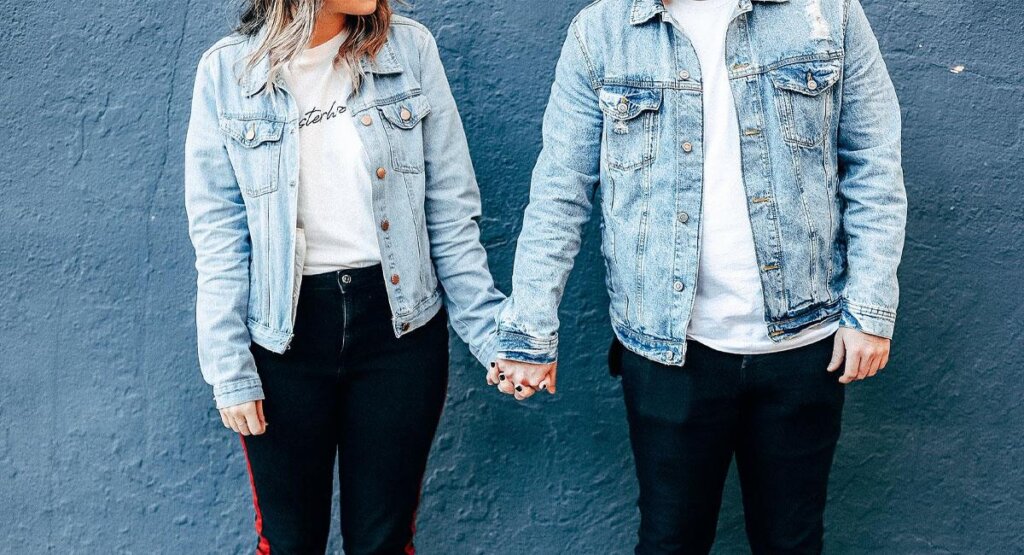Many Couples Start Out As Friends, Research Suggests


Written and verified by the psychologist Valeria Sabater
Love finds us in many ways. Sometimes, it’s instant. At first sight, first conversation, or first flirtation, when mutual fascination and passion unite us right from the start. It often happens, However, according to a recent study, a good proportion of couples start out as friends.
In other words, the most common thing is for love to develop slowly in the day-to-day routine where shared support, laughter, and good harmony lead, sooner or later, into an affective bond. Many people will identify with this. In fact, research published in the journal, Social Psychological and Personality Science claims that, in general, people who ultimately end up as partners often aren’t actually attracted to each other in the first place.
As a rule, it’s not particularly common to feel any special attraction to a work colleague or a friend of a friend. However, it seems that, after time, no one could be more perfect or charming. In fact, almost, without knowing how, this figure becomes that special someone in your life who you can’t live without.
The love that emerges from friendships becomes apparent after a year or two, according to a recent study.

68 percent of couples started out as friends
The lead author of this research paper is Danu Anthony Stinson from the University of Victoria in Canada. In many ways, the results aren’t surprising. Indeed, despite the fact that we live in the age of Tinder and other apps that allow us to find a partner – or a relationship for just one night – people continue to fall in love at a slow pace and on a day-to-day basis.
However, this by no means signifies that relationships arising from friendship are better than those that result from an almost instantaneous attraction. Nevertheless, the way in which they’re built is perhaps more interesting. In fact, starting a relationship after being good friends allows you to enter into the bond with greater security, knowledge, and complicity.
The research claims that the time from the moment people meet and begin a friendship until love appears, is, on average, 22 months. In fact, almost two years in which the magic of trust, the chemistry of attraction, the alliance of intimacy, admiration, and that hidden desire that emerges slowly, but clearly, is gradually constructed.
From friendship to platonic love to the consolidation of a couple
Movies and television often depict fabulous stories that start with love at first sight. They start with a crush and, from there, various adventures arise that end in an idyllic relationship. However, if these movies started from what happens, in reality, to around two-thirds of people, the films would be excessively long.
Many couples who start out as friends go through various stages. It should also be noted that this experience occurs both in heterosexual people and in the LGBTQ + community. In general, a friendship begins and, after a few months, a platonic love appears. They begin to fantasize about their colleague or classmate, the friend with whom they get along so well, and who supports them on a daily basis.
It should be clarified that in platonic love, sexual desire doesn’t always exist in an open way. In fact, there’s usually emotional and intellectual attraction, added to idealization. Physical attraction and desire emerge later, in the phase that generally precedes the consolidation of the couple.
Often, genuine and nurturing friendship is accompanied by an intellectual attraction similar to sapiosexuality. These people tune in to countless details and aspects that, little by little, lead to a relationship.

Couples who start out as friends
The author of this work, Danu Anthony Stinson, claims that many of the people surveyed in his research indicated that they prefer to start a relationship from a friendship. Therefore, it seems that we tend to almost take it for granted that nothing is as important in an affective bond as the complicity of someone who, before being a lover, knew how to be a life partner.
Those who started out as friends have this advantage. Indeed, they know that they’re going to have someone to lean on, a figure with whom they’ve shared many things previously. However, as we mentioned earlier, this doesn’t necessarily mean that these types of links are richer and happier than those that start with a mutual attraction and a rapid consolidation of the relationship.
As a matter of fact, everyone finds love in their own way, and none are any better or worse than others. Because the most decisive thing is what happens next. That’s when the affective bond and coexistence begin. Indeed, this stage is always new for everyone and requires multiple efforts and delicate psycho-emotional crafts.
However, we can never remove the variable of friendship from the equation of love. Indeed, without it, only passion and desire remain. These are fleeting dimensions that, although intense, don’t always last or, at least, don’t tend to fuel long-term commitment.
All cited sources were thoroughly reviewed by our team to ensure their quality, reliability, currency, and validity. The bibliography of this article was considered reliable and of academic or scientific accuracy.
- Stinson DA, Cameron JJ, Hoplock LB. The Friends-to-Lovers Pathway to Romance: Prevalent, Preferred, and Overlooked by Science. Social Psychological and Personality Science. July 2021. doi:10.1177/19485506211026992
This text is provided for informational purposes only and does not replace consultation with a professional. If in doubt, consult your specialist.








